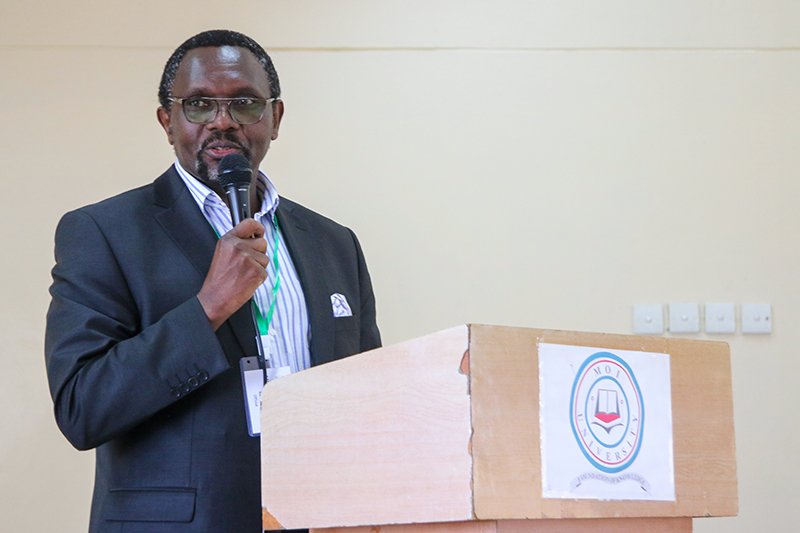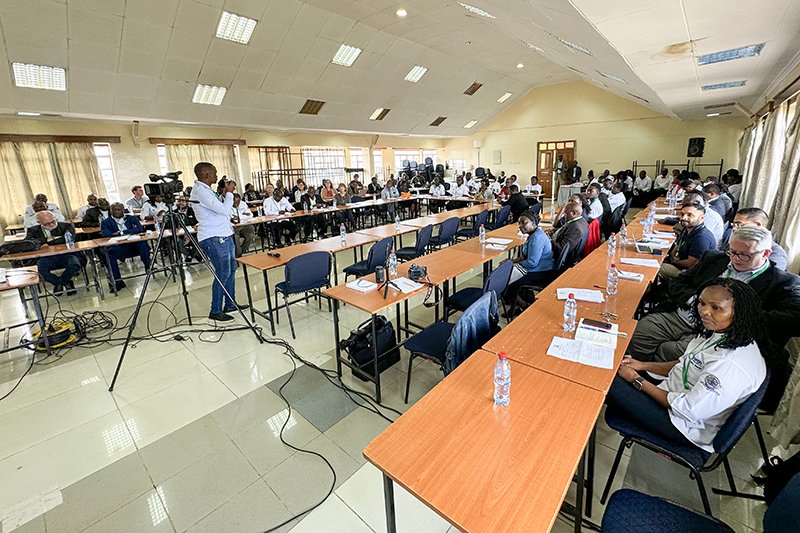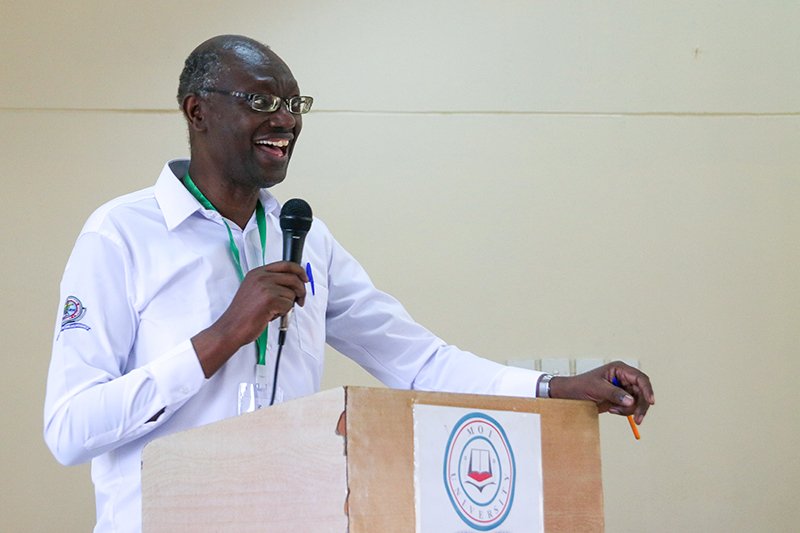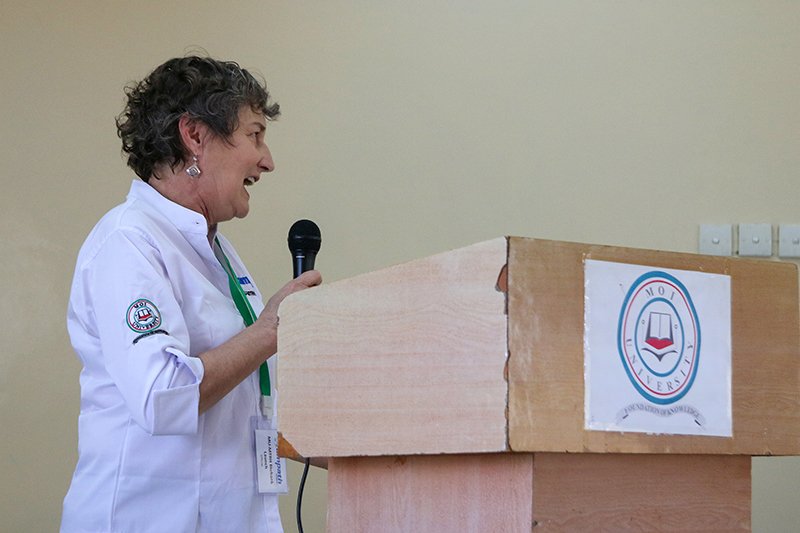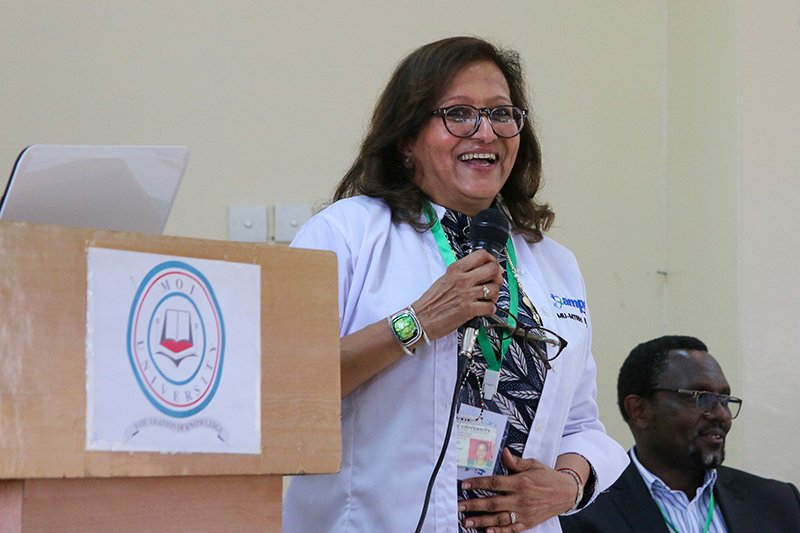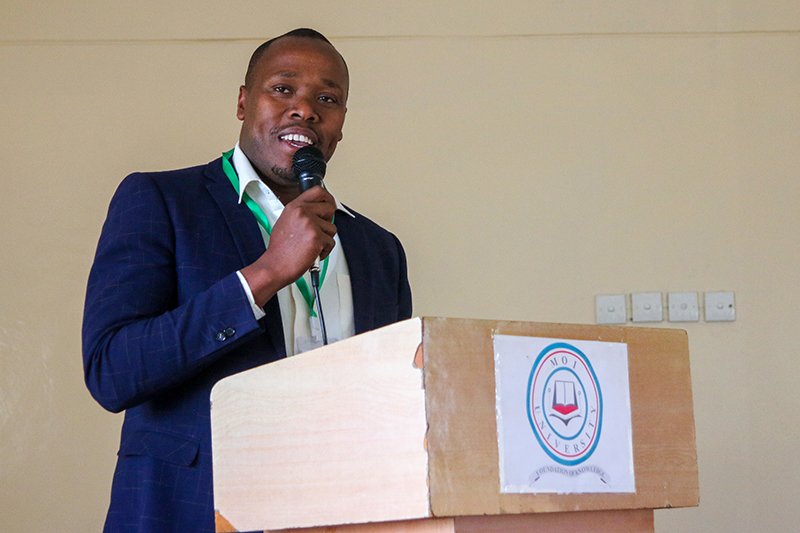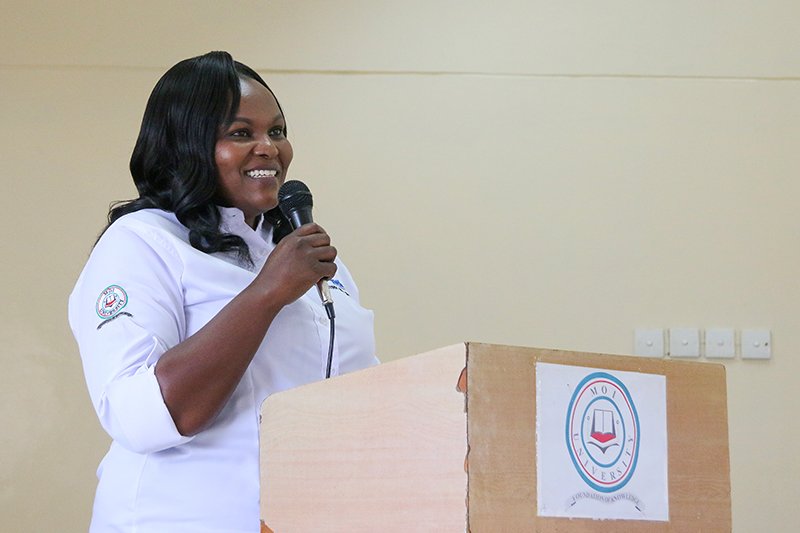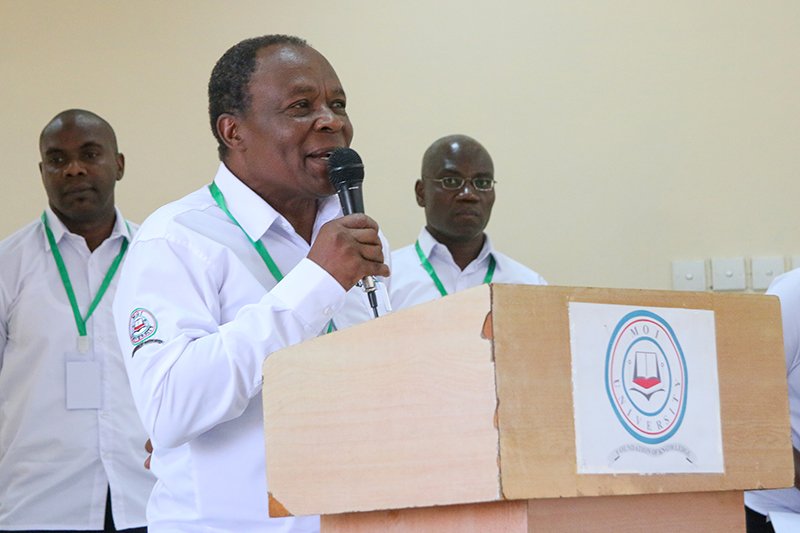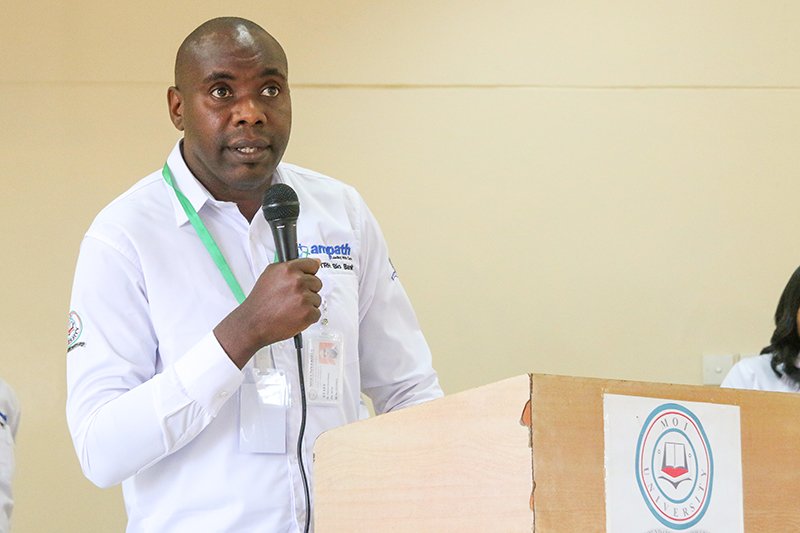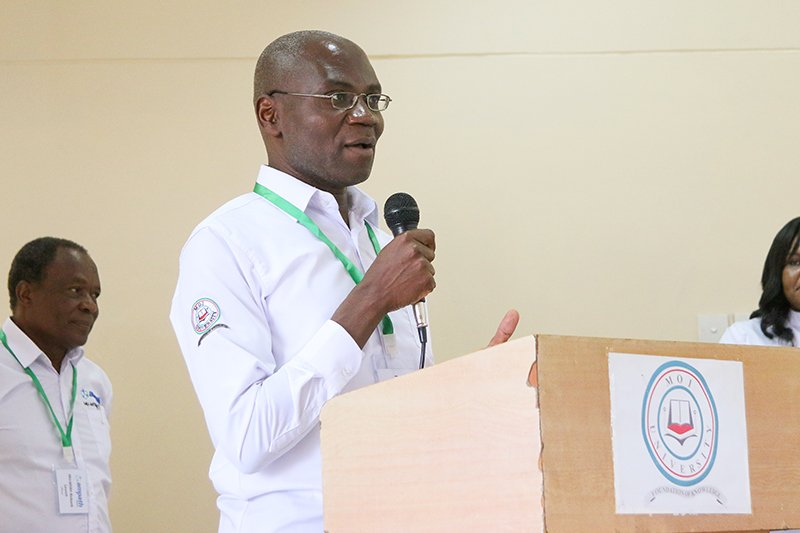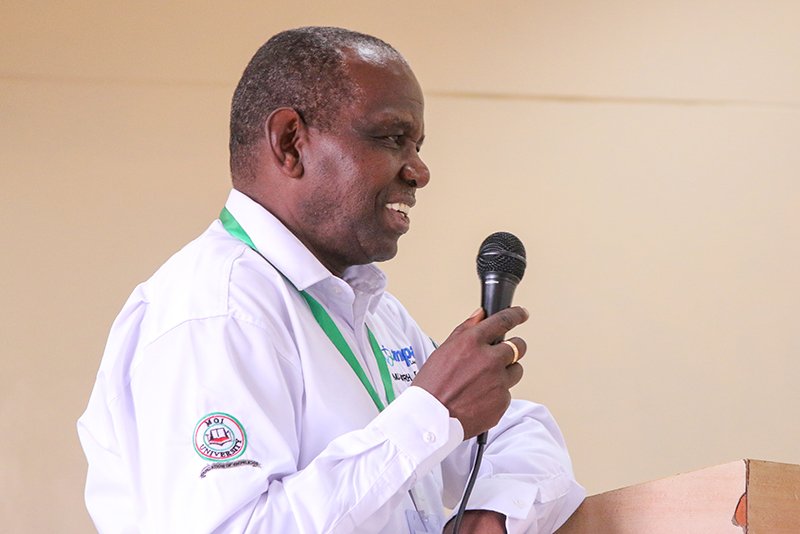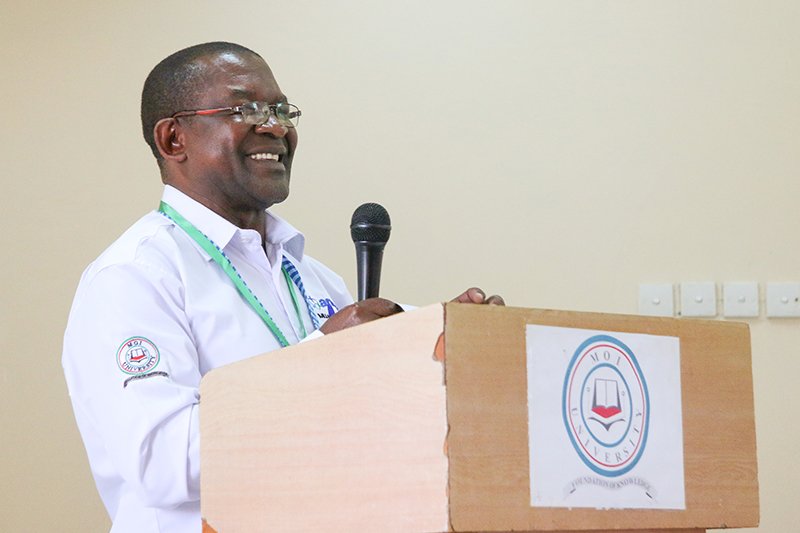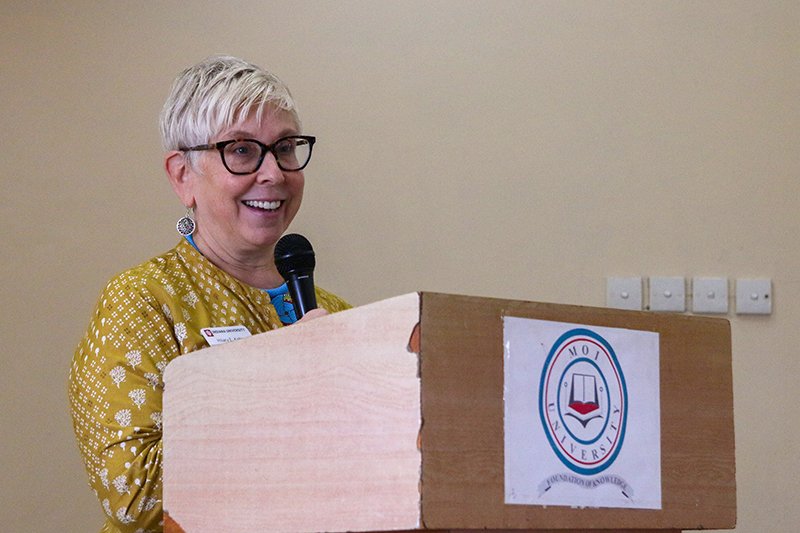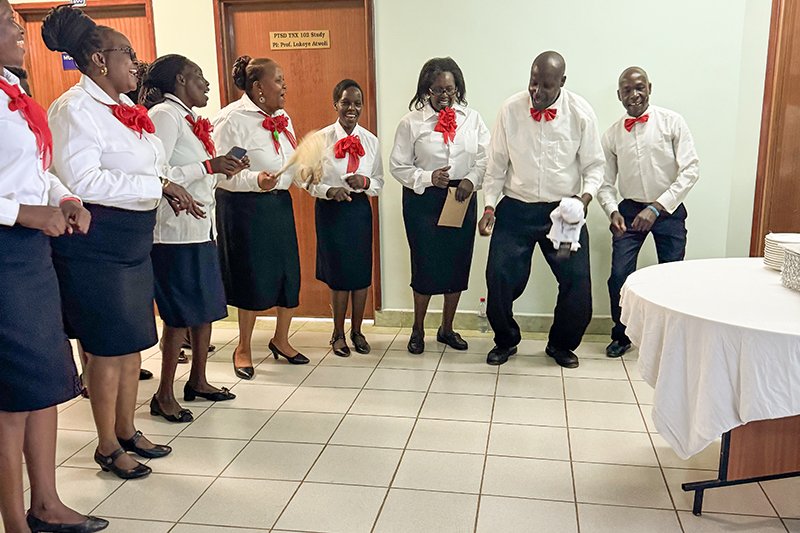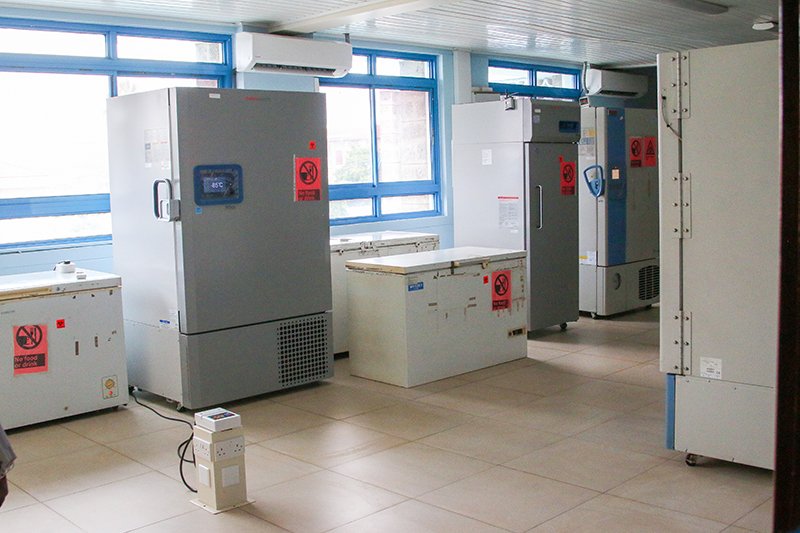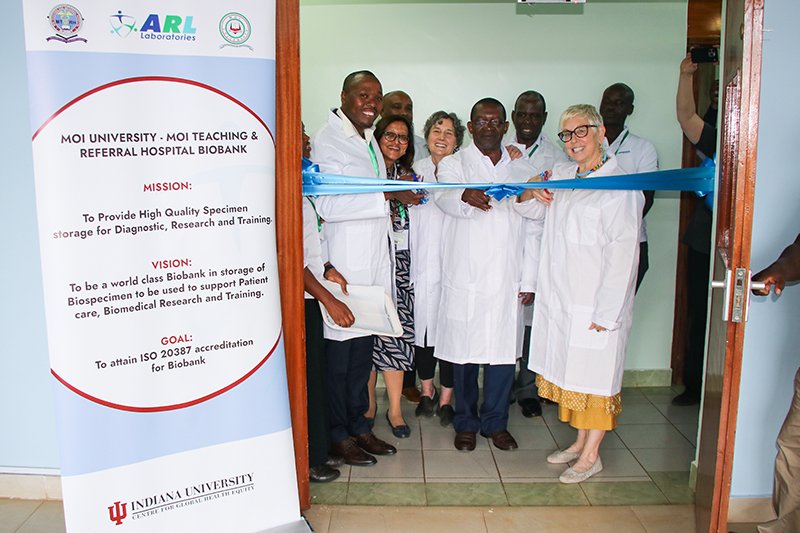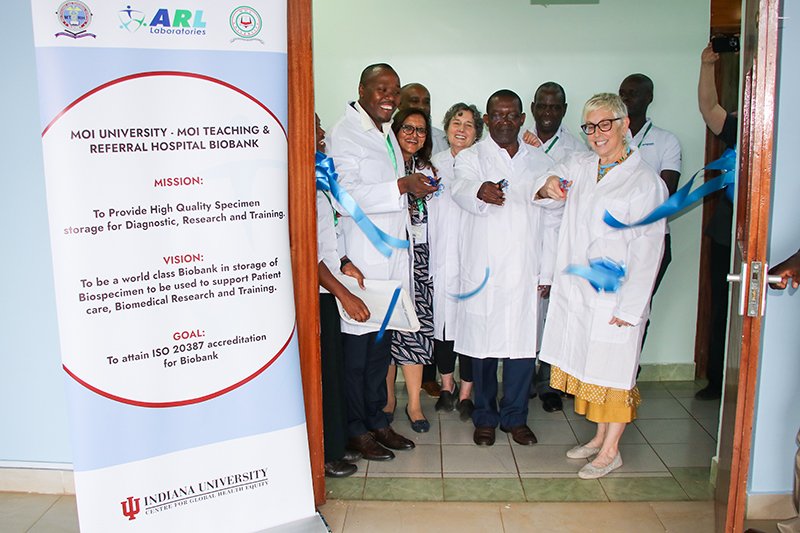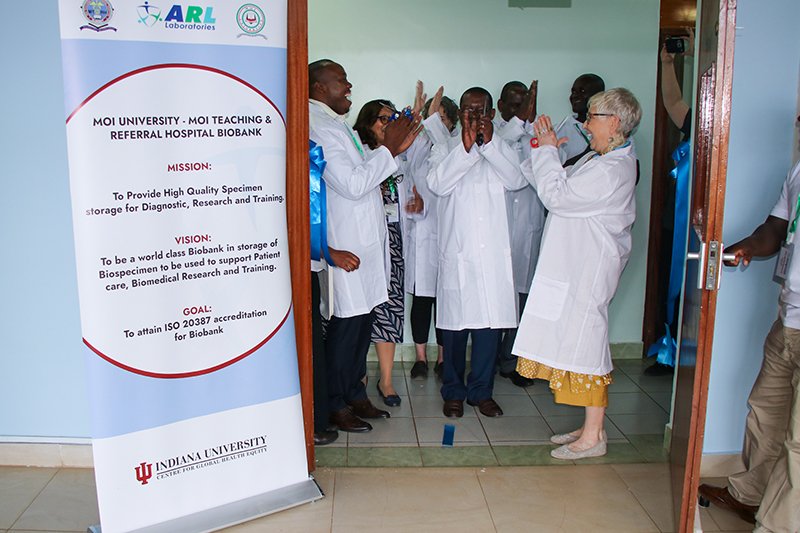Moi University and Moi Teaching and Referral Hospital Open Biobank to Advance Research
The AMPATH family celebrated the opening of the Moi University-Moi Teaching and Referral Hospital Biobank (MMBB) in January by comparing it to the arrival of a much-anticipated baby.
Professor Winstone Nyandiko, AMPATH co-director of research, led the festivities and noted that the biobank gestation was more than 10 years. “For sure AMPATH is known for leading with care, but research has informed a lot of the work we do in care, so it’s a very complementary relationship,” he added.
“Eldoret is not only known for its athletes, but it is also a home to the country’s most relevant and impactful research in infectious and non-infectious diseases,” said Professor Kirtika Patel, chair of the Department of Pathology at Moi University School of Medicine and co-principal investigator of the MMBB.
A biobank is a dedicated space where biospecimens such as blood or tissue are stored for short or long-term for use in research or training. Specimens are only stored with the informed consent of patients. All specimens are collected and shared according to ethical and legal requirements.
Dr. Patel explained the long process for learning about how to establish and operate a biobank and setting up a facility that adhered to the best practices for biobanks. “There are lots of standard operating procedures involved in maintaining a biobank,” said Prof. Patel. “They are important because they minimize the variation between samples. Everything is stored according to the Standard Operating Procedures (SOPs). We want to keep the biospecimen as close to the natural state.”
The biobank is located in a refurbished space in the MTRH Chandaria Cancer and Chronic Diseases Centre and has a robust security and tracking system. “Not everyone can come and see my baby,” joked Prof. Patel. The facility currently includes 11 freezers housing nearly 200,000 specimens. Five trained and dedicated personnel oversee the daily operations.
Professor Robert Tenge Kuremu, Principal of the Moi University College of Health Sciences and member of the MTRH Board spoke on behalf of the hospital and said, “We have opened our doors for teaching and research, and we support therefore the establishment of this biobank, because we believe it will go a long way in ensuring that answers are found for our local problems.” He also brought congratulations on behalf of Moi University and vice chancellor Isaac Kosgey.
Leaders from biobanks at Indiana University provided expertise for training and operations during the development of the MMBB. Professor Hilary Kahn, interim vice-president of international affairs at Indiana University, said that AMPATH is more than a partnership or collaboration. “This is a foundation of compassion, of care, of excellence that is here to advance one health, planetary health. It’s about making the world a better place and truly taking advantage of our interconnections. On behalf of Indiana University, I congratulate all of you. Indiana University is so proud to be part of this foundation of care,” she said.
“This has been a very long journey to get to this point and I want to just acknowledge the people who have driven forward this journey,” said Dr. Kara Wools-Kaloustian, AMPATH co-director of research. “This started under Tom Inui, who was three directors ago for research on the U.S. side. Prof. Nyandiko has survived all of us. We want to applaud him for his longevity,” she joked. “Professor Patel, without your guidance, leadership, and movement of the team forward, we would never have arrived at this place.”
Other honored guests included: Dr. Elias Melly, director of the National Cancer Institute of Kenya; Professor Arthur Kwena, associate professor of medical biochemistry; Professor Simeon Mining, acting registrar of administration, planning and strategy of Moi University; Dean Julia Songok, Moi University School of Medicine; Dean Patrick Kerre, Moi University School of Public Health; Dean Ochiba Lukandu, Moi University School of Dentistry; Phaedra Corso, associate vice-president and vice-chancellor for research at Indiana University; Rachel Vreeman, director of the Arnhold Institute of Global Health at Mount Sinai and former co-director of research at AMPATH.


